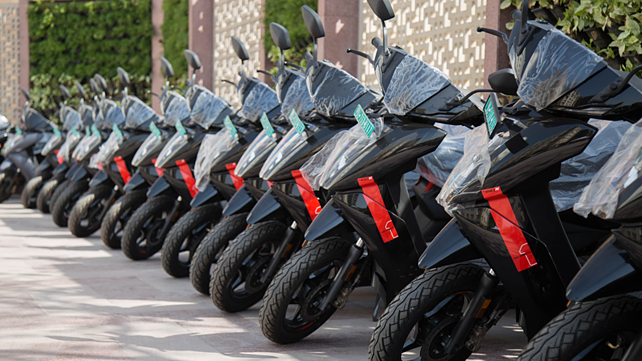
The electric two-wheeler (E2W) segment gets the booster shot as the government of India has recently announced that it increased the subsidy cap from INR 10,000 per KwH to INR 15,000 per KwH as the leading players in the sector eyeing large volumes in the next few years.
According to the draft notification, the Ministry of Heavy Industries and Public Enterprises notified that the demand incentive has been raised to INR 15,000/Kwh from the earlier INR 10,000/Kwh. The subsidy will have a cap of 40% of the cost of the vehicle.
With this, a city speed electric scooter with a range of 100km/charge will now cost less than 60,000, and a high-speed scooter with a range of 80 km will come nearer to the price tag of INR1 lakh.
Applauding the move, Sohinder Gill, Director General, Society of Manufacturers of Electric Vehicles ( SMEV), said it is a move that will bring down the prices of E2W nearer to the ICE vehicles, removing one of the biggest blockades of the high sticker price of these electric vehicles.
Leading two-wheeler manufacturer TVS Motors Company’s Joint Managing Director Sudarshan Venu said the company welcomes the government’s continued support of EVs. Sustainable mobility solutions are essential for the future, and TVS is investing significantly behind this. He added that the improved incentives for E2W will increase penetration and encourage further indigenous investments in future technology.
Industry experts say the time has come for mass adoption of electric two-wheelers, and such initiatives coupled with a mass awareness campaign by the government and easy terms financing by public sector banks will bring closer to the target of 30% of the two-wheeler market becoming electric in 5 years.
Lowering the prices of electric scooters in the country will help to persuade more riders to switch from a combustion-engined model to an electric one. “We have always emphasised the importance of creating an ecosystem for EV mobility, and this new revision to the FAME II scheme is an important step in that direction,” said Jeetender Sharma, MD & Founder Okinawa Autotech.
Terming it as significant moves in the last decade for the electric vehicles industry, Naveen Munjal, MD, Hero Electric, said the increase in the cap of subsidies for EVs will be a game-changer driving consumers towards electric scooters even as petrol prices continue to touch the INR 100 mark.
Similarly, Uday Narang, Chairman, Omega Seiki Mobility, said electric vehicles are costlier than traditional vehicles with internal combustion engines. The announcement is a “major incentive for Make-in-India local manufacturers like us, enabling us to bring more and more EVs of various segments to the country. This will notably make India a significant player in the EV Industry,” Narang added.
As per ICRA's estimates, the initial cost of ownership for high-speed e2Ws will incrementally reduce by a minimum 10-12%, (when comparing currently available popular models) and result in a lower payback period. Prior to this, the payback period was estimated to be four years (in terms of total cost of ownership), which now stands reduced to three years
Shamsher Dewan, Vice President & Group Head, ICRA, said the favourable amendment to the scheme has reinforced the Government’s commitment and intent for India’s EV industry. In ICRA's view, ongoing investments by both start-ups and industry incumbents will also play a vital role in India’s electrification journey.
'While the modalities for demand aggregation by EESL are yet to be announced, the Government's intention of accelerating EV penetration is visible from the recent changes. In the e-bus segment, ICRA expects the Public-Private Partnership (PPP) model under Gross Cost Contract (GCC) route to remain the preferred route to reduce the financial burden on the SRTUs' added Dewan